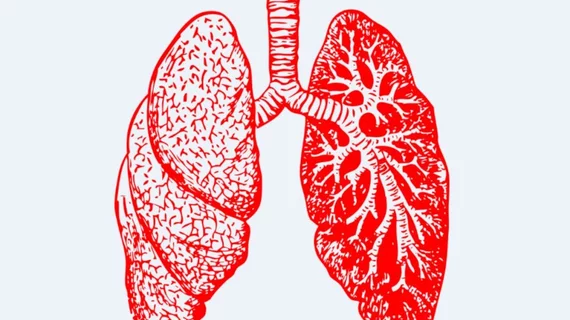A free lung cancer screening program using National Comprehensive Cancer Network (NCCN) guidelines detected more cancers and ultimately generated profit for the institution conducting the screenings, according to a single-center study published in The Annals of Thoracic Surgery.
"Our free lung screening program is a win for the communities we serve and for the hospital system," said corresponding author Carsten Schroeder, MD, PhD, of Augusta University Medical Center in Georgia, in a news release. "We bring them in for a free screening, which serves as a starting point for their medical care and health needs for the rest of their lives."
The broader NCCN-based program allowed the group to detect twice the number of lung cancers, according to the authors, and after the program’s third fiscal year, the net margin per case turned positive to $177. In the program’s first year, the institution took on a $212 loss per case
“Much of this downstream revenue is created by increased surgical intervention for operable lung cancers (because 73.7 percent of the lung cancers found were early stage), referrals to specialists for other severe pathologic processes, and the introduction of new patients into our system who require other health care services,” Schroeder et al. added.
As part of the study, Schroeder and colleagues analyzed the costs from 705 low-dose computed tomography (LDCT) chest scans performed on underserved patients in the Southeastern U.S. The cohort was chosen using the NCCN high-risk criteria which allowed the team to screen twice as many patients compared to the Centers for Medicare and Medicaid Services criteria, the authors noted.
Of the 705 scans, 418 patients were referred for follow-up procedures or referrals. A total of 42 percent of the lung cancers detected were stage I and more than 73 percent of all lung cancers were in early stages. At their institution, approximate costs for treating these cancers ranges from $10,000 to $20,000 compared to the $80,000 to $100,000 required to treat stage III or IV lung cancers.
“Because our hospital is the primary institution providing health care to the region for the regional disadvantaged population, many of the patients with lung cancer who enter our system are in the advanced stages,” the authors wrote. “Because we nevertheless acquire these patients in need, it is clearly advantageous for our institution to detect these lung cancers at an earlier stage not just from a humanitarian standpoint but from an economical vantage as well.”

